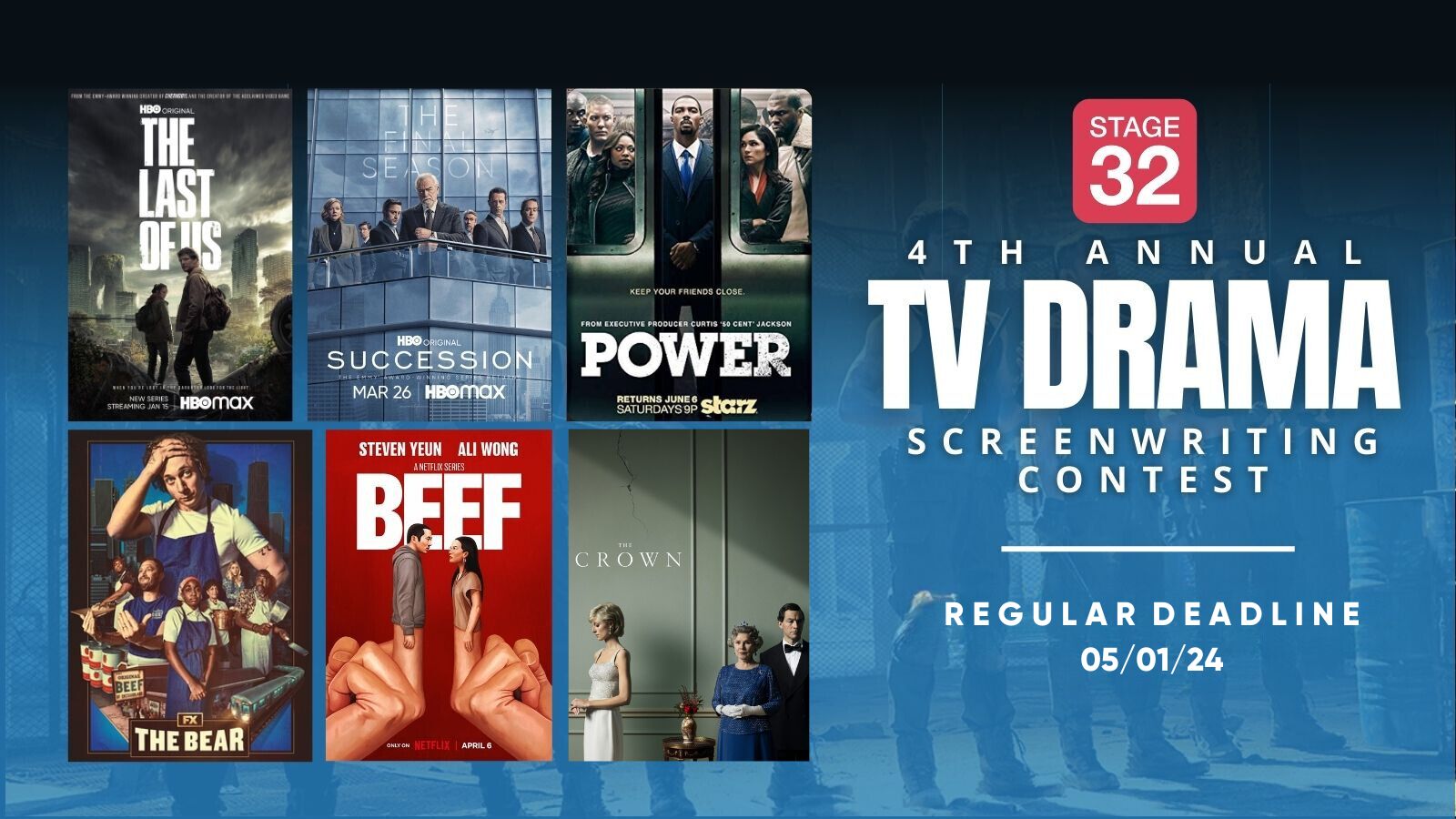Attended a seminar at The Great American Pitch Fest two weeks ago. One of the panelists, a contest winner, talked about how his writing had gotten so focused that he was sending out 65-75 page scripts. Awesome. Cut to the bone. I have some anxiety about being this efficient though. Anyone having luck sending out scripts at that length? I have a contained/limited location thriller in the works and it's coming in at 76 pages. I have some worry that the coverage I receive may find this thin, lacking.



1 person likes this
Seriously: I don't know of any company that would look at a script that short. This person was a contest winner... but had they sold anything?
3 people like this
I don't know of any company that would read a 70 page feature script. And I disagree - I think execs would rather read 120 and know what 15 pages to cut than read 75 pages and have to come up with new story points and MORE plot to flesh it out. Cutting is easy, creating is hard. I think this writer us doing a horrible disservice.
2 people like this
I wouldn't recommend rejecting the norm unless you have enough credibility to do so. Daniel Kunka sold a 52-page script (http://deadline.com/2014/04/qed-buys-yellowstone-falls-52-page-spec-abou...), but he is a produced screenwriter who has sold scripts to multiple studios/financiers. He had the credibility and the guts to try something anomalous, and he was rewarded. But this is an atypical case, not the norm.
Agree wholly. The story goes where the story goes, corrections and reformations later. Couldn't get a sense of where the guy had sold but he was convinced (and had more than a few listeners in the audience clamoring, of course) that the shorter the better, beyond known page length. I think I'm on with Danny's thinking. Better to cut back from a lot of good than scratch your head and wonder how to add material.
Oh; I don't know but personally, page length is not what I care about. The story is going to change. If page length is too long, cuts are needed or the script won't be read: know anyone who wants to read 146 script pages when the other 7 that need to be read range from 99 to 124? So, I do care about too many pages. 75 pages, 95 pages means there's room for more if the script gets past the reader. I think adding is easier than subtracting and there's room for developers to give notes and hopes. Have a nice day everyone. Keep writing everyday.
Page length will differ in relation to the type of story you are telling. The Big summer movies are almost always 120+ minutes long. Personally I prefer a two hour movie -- as long as it's a good one of course.
2 people like this
Nobody of merit is going to consider a 75 page script as it's far too short from industry standard. It's more like an extended story treatment. 100 pages is about the perfect length and if you are writing an assignment gig it can go as long as the producer wants. It's not always a page a minute as I learned consulting on a feature with some pages timing in at 60 seconds and others much longer. When I consult on a script, if it's lean in the 80's I can tell the writer ran out of story and it's absurd to consider a complete feature film that is far too short. When you move into development, the script becomes a exact detailed blueprint to make the film and I can't see how anything under 100 pages could work. I've written 28 features with eight produced, one spec produced sale and thirteen assignments and no producer EVER allowed me to turn in anything less than 100 pages.
2 people like this
If this guy is sending out scripts in the 65-75 page range - I'd like to know what he's smoking. For a one hour TV episode with rapid fire dialogue? Otherwise - if it's for a feature - he's way too short. In the old days - features would clock in around 120 pages and you'd figure 45 seconds to a minute of screen time per page. Readers/execs/producers now have the attention spans of gnats - and tend to look at the last page first to get a page count - at 120 - they might think it's "too long". Than again - might show some courtesy and READ IT FIRST to see what the story is and how long it actually takes to tell it. But since they're the buyers (as they like to remind you) - I would shoot for 100-110 and make your storytelling as tight as possible. You're also smart to leave a bit of "fat" (even though you might not consider it that) - to give the potential buyer something to "trim" (whether it needs it or not) to feel as if they have left their mark on it (like a dog peeing on a tree to mark its territory). If you come in UNDER 100 - especially drastically so (65-75!!!) - they'll cut it down to 50 and leave you with a live action short. You're asking for trouble. Best way to go - as others have said - tell the story you want to tell. Take as long as you need for a FIRST DRAFT. Throw in every idea and plot twist you have. Then write FADE OUT. Let it sit and marinate for a couple of weeks. Go back - read it again (especially your dialogue - out loud) - and cut every redundancy - every bit of dialogue or description which is unnecessary - every bit of "fat" which YOU can find without fundamentally changing your plotting and characters - and see where you're at. If it comes in at 100-110 - send it out. Above that - trim it again. Below that - see if you took out too much.
...aaaaand the math experts check in w/o a paragraph break...
2 people like this
Um, studios didn't have anything to do with SOMEWHERE. It was an indie, made completely outside the studio system, and she had to find the funding herself (most of it came from Italy, I believe). That was never a sold screenplay, that was an indie: which means the writer/director found the $ herself and then just made the movie. Unless that is the plan, you might want to figure out why your screenplay is so short and then fix that problem.
Cool, Peter Corey. Write on; write on ...
Whoa! 65-75 pages? Good gosh, is this man writing the sequel to the dictionary? You have to write tighter than that to make it in this business! I've gotten my feature length scripts down to about 16-17 pages. I just try and find the core of the story and really try to focus in. Pin point the essentials. Tight, tight, tight writing. My end goal is to get my feature length screenplays to about a half, maybe full page if I'm feeling edgy. That's the real golden number for studios these days. It's been confirmed by all the execs and hollywood and movie stars and all them.
2 people like this
I recent wrote a Disney channel style musical (think Camp Rock or Lemonade Mouth) for a director. He asked me to keep it under 80 pages because I needed to account for all the songs and he wanted to keep the film under 90 minutes. The drafts I turned in were around 75 pages. If you were writing a script with minimal or no dialog I could see it coming in at 65-75. I believe the script for The Artist was around 50 pages. That being said, a feature script coming in at 65-75 would seen a little thin.
3 people like this
My last feature script started at over 120 pages. I cut numerous scenes, chopped dialogue and have shortened it to 99 pages. I'm not a fan of long movies, not because of a short attention span, but because two hour plus films often contain unnecessary scenes that distract from the plot and purpose of the film. Knocked Up and most Judd Apatow films succeed due to their star power, but the plots meander and by the end I'm bored and waiting for the story to re-emerge. Aiming for between 100 and 110 is a safe bet for studio screenplays. Indie films have more latitude, but also limited resources. If I plan on taking the indie-route with a film, I'll plan on 90 to 100 pages. Genre is also worth considering when determining the ideal length.
3 people like this
Tony is right when he says that genre matters when determining length. Comedies - which are more dialogue heavy and can be delivered at a fast clip (while the editor agonizes over how long the pauses should be to allow for audience laughter - assuming there is any) could be shorter, action - depending on how descriptive the writer is with the action - trend longer - but as a rule of thumb - coming in between 90-110 is still smart. As for Jean-Pierre - I hope you were joking when you said you've gotten your feature length scripts down to 16-17 pages. The only "golden number" that would hit at the studios is the lunch list they give to their assistants. And to Peter Corey: SOMEWHERE is a bad example to use in terms of script length. A). because no matter where the money came from to finance Sofia's film - her last name is Coppola and she's an Oscar winning screenwriter - so the same rules wouldn't apply to her as they would the rest of us and B). Somewhere could afford to be short because NOTHING HAPPENED in the whole frigging movie - unless you enjoy watching a car driven in and out of frame in circles for 8 minutes. And then run out of gas at the end and get abandoned at the side of the road - which was an apt metaphor for the movie itself. It was one of the worst movies I've ever seen in my life. I was sent a screener of it and watched it with my 3 kids and it was like a roast with all the barbs we were hurling at the screen while we debated whether to waste any more of our lives watching it til the end - or came up with inventive ways to destroy the screener.
1 person likes this
Alan T. - good point on doing a musical. Depending on the number of songs and length of same - that would definitely affect the running time of the film. Musicals on film (as well as on stage) tend to be long - and the trend these days - with entire generations having grown up with rapid cut MTV music videos - is a short attention span. Not sure what sort of reception a film like "West Side Story" would get if it was made in 2015. But you also have the advantage of working with a producer who's telling you what he needs up front. As for "The Artist" - it was a silent film - which would account for a short screenplay length as it was almost totally devoid of dialogue. I didn't like that movie either. There's a reason they don't make silent films any more - and The Artist is a shining example.